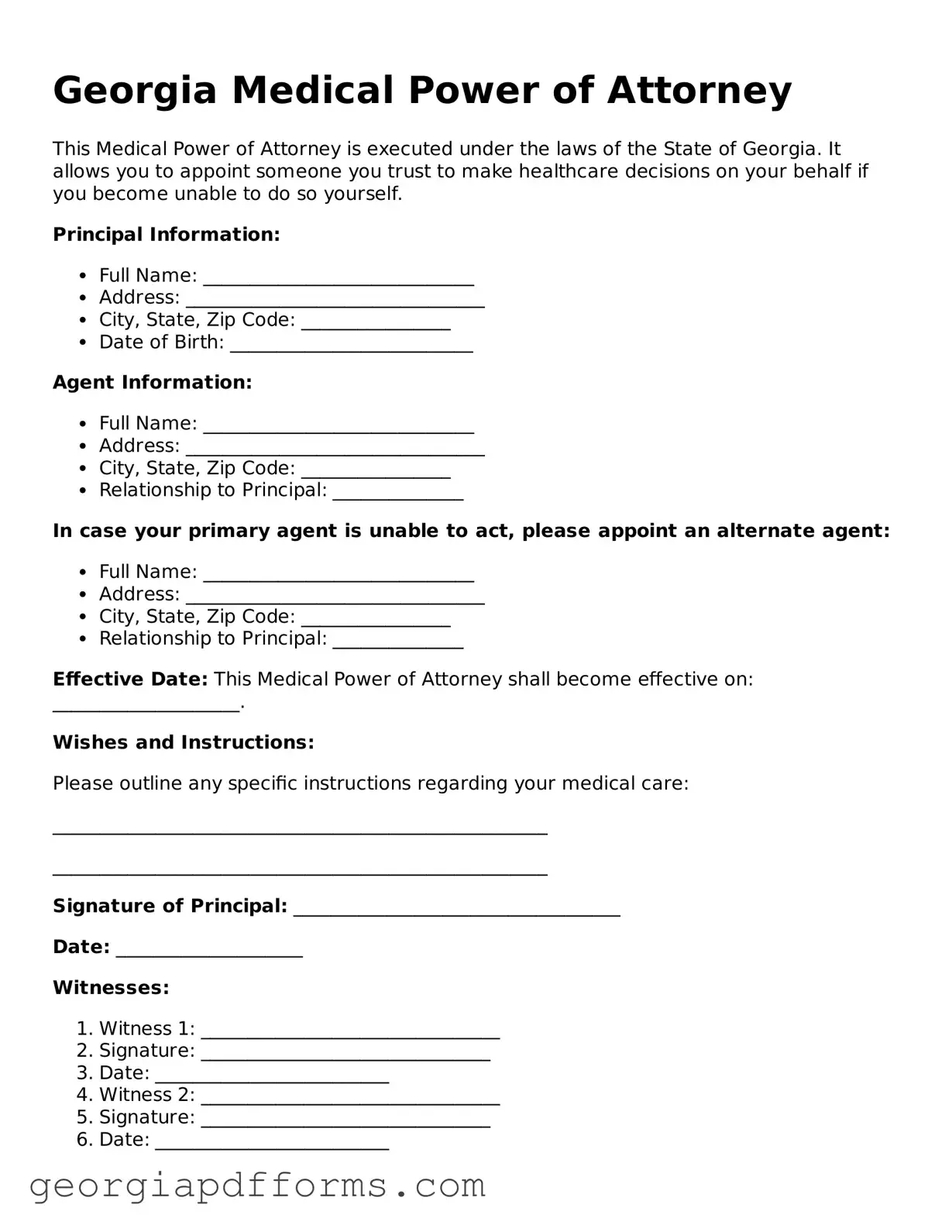What is a Medical Power of Attorney in Georgia?
A Medical Power of Attorney is a legal document that allows an individual, known as the principal, to designate another person, called an agent, to make medical decisions on their behalf if they become unable to do so. This document ensures that the principal's healthcare preferences are honored when they cannot communicate their wishes directly.
Who can be appointed as an agent in a Medical Power of Attorney?
In Georgia, any competent adult can be appointed as an agent in a Medical Power of Attorney. This includes family members, friends, or trusted individuals. However, it is important to choose someone who understands the principal's values and healthcare preferences.
Is a Medical Power of Attorney the same as a Living Will?
No, a Medical Power of Attorney and a Living Will are not the same. A Medical Power of Attorney designates someone to make medical decisions for the principal, while a Living Will outlines specific wishes regarding end-of-life care and treatment preferences. Both documents can work together to ensure comprehensive healthcare planning.
How do I create a Medical Power of Attorney in Georgia?
To create a Medical Power of Attorney in Georgia, the principal must complete the appropriate form, which includes identifying the agent and specifying any limitations or instructions. The document must then be signed by the principal in the presence of two witnesses or a notary public to be valid.
Can I revoke my Medical Power of Attorney once it is created?
Yes, a principal can revoke their Medical Power of Attorney at any time, as long as they are competent. To revoke the document, the principal should notify the agent and any healthcare providers involved in their care. It is advisable to create a written revocation to avoid any confusion.
What happens if I do not have a Medical Power of Attorney?
If an individual does not have a Medical Power of Attorney and becomes incapacitated, medical decisions may be made by family members or guardians, but this can lead to disputes or decisions that may not align with the individual's wishes. Having a Medical Power of Attorney ensures that the principal's preferences are clearly communicated and respected.
Are there any specific requirements for witnesses in Georgia?
Yes, in Georgia, the witnesses must be at least 18 years old and cannot be the appointed agent or related to the principal by blood or marriage. Additionally, they should not be entitled to any portion of the principal’s estate to avoid any conflicts of interest.
Can I include specific medical treatment preferences in my Medical Power of Attorney?
Yes, the principal can include specific medical treatment preferences in the Medical Power of Attorney. This can include instructions about life-sustaining treatments, organ donation, and other healthcare decisions. Clear instructions help guide the agent in making decisions that align with the principal's values.
Does a Medical Power of Attorney expire?
A Medical Power of Attorney does not automatically expire unless specified in the document. It remains in effect until the principal revokes it, the principal passes away, or a court determines that the principal is no longer competent. Regularly reviewing the document is recommended to ensure it reflects current wishes.
Where should I keep my Medical Power of Attorney document?
The Medical Power of Attorney should be kept in a safe place where it can be easily accessed by the principal and the appointed agent. It is also advisable to provide copies to the agent, family members, and healthcare providers to ensure that everyone is aware of the principal's wishes.

